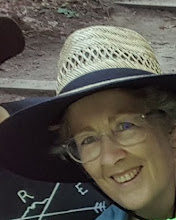 Intergenerational Communication and MEBates again on Marketing for Introverts
Intergenerational Communication and MEBates again on Marketing for Introverts
Two good sessions today. I'm in Anderson, Indiana, very late after a wonderful visit with an old college chum I hadn't seen in person since I'd graduated back in the time of Pangea. So this will be quick.
The first session was on intergenerational communication. Basically, after much discussion and brainstorming with the group, the speaker concluded that generations are only the context, not the core issue. Intergenerational differences are as old as humans, the current situation seems to be a transition between an Industrial Age mindset and an Information Age mindset and that culturally, we haven't all made the transition to the new age. She says that a failure to communicate is the root of all office problems and that we can overcome that by making the effort to ask questions of and getting to know our co-workers. She also says that managers need to be explicit in stating their expectations. The core behaviors expected of all employees of any generation center around a) manners and kindness b) pride in one's work and c) willingness to be of help and service. Defining these norms for the workplace, communicating them clearly, and being willing to put self aside to listen to one another are key. She offered a handout that included the four steps to good communication.
The second session was another by Mary Ellen Bates on marketing for introverts. Boy I'm whupped. Hope this makes sense. A lot of this is about carefully choosing words. The idea is to talk about what you value in ways that are authentic and come from the core of why you love what you do. The other part of this is to NOT talk about features (ie. what services the library offers) but to ALWAYS talk about benefits to the listener.
So if conversation is a ping pong game, when someone asks you what you do, don't say "I'm a librarian"--that stops the ball. The best response is to say, "I just love my job, and this past week I got to do (this really cool thing) that resulted in helping someone (do this)." This gives the other player something about you to be interested in and wanting to learn more.
She also said to never say you went to library school, always reply that you went to graduate school as folks give that more weight. It's all about being conscious of assigning meaningful value to what we do.
Ie. Don't say "We do online searching" or talk about "search results". Instead, "We do in depth searching for content Google can't find". Search results are "information analysis". Other good phrases include:
- We bring insights from the outside
- We go deeper than Google to bring you analysis you can use
- We deliver information when decisions need to be made
- We make critical information findable
- We reduce risk through better understanding
- I help people find and use information
- I enable staff to work more strategically/effectively/efficiently
I'm sure you get the drift. She also suggested having prepared in advance a three sentence elevator speech for when someone asks what you do based on real events you've made anonymous. 1) Give a one sentence description of a client's situation 2) Give a one sentence description of your deliverable 3) End with a one sentence description of what the client was able to do with the information. So when someone asks what you do, you can say, "Let me tell you what I just did . . . 1) 2) 3)
And if that makes sense you are a better man than I am. Hitting the hay. It was a great conference. I learned a lot about better clarifying to others what I do and why it matters whether it is reporting carefully thought out metrics that illustrate the value of my work, or answering a casual question at a party. We covered a lot of ground about making our work meaningful to others. We'll talk more about it Monday. The rest of this week is vacation.
Miss you all!




No comments:
Post a Comment